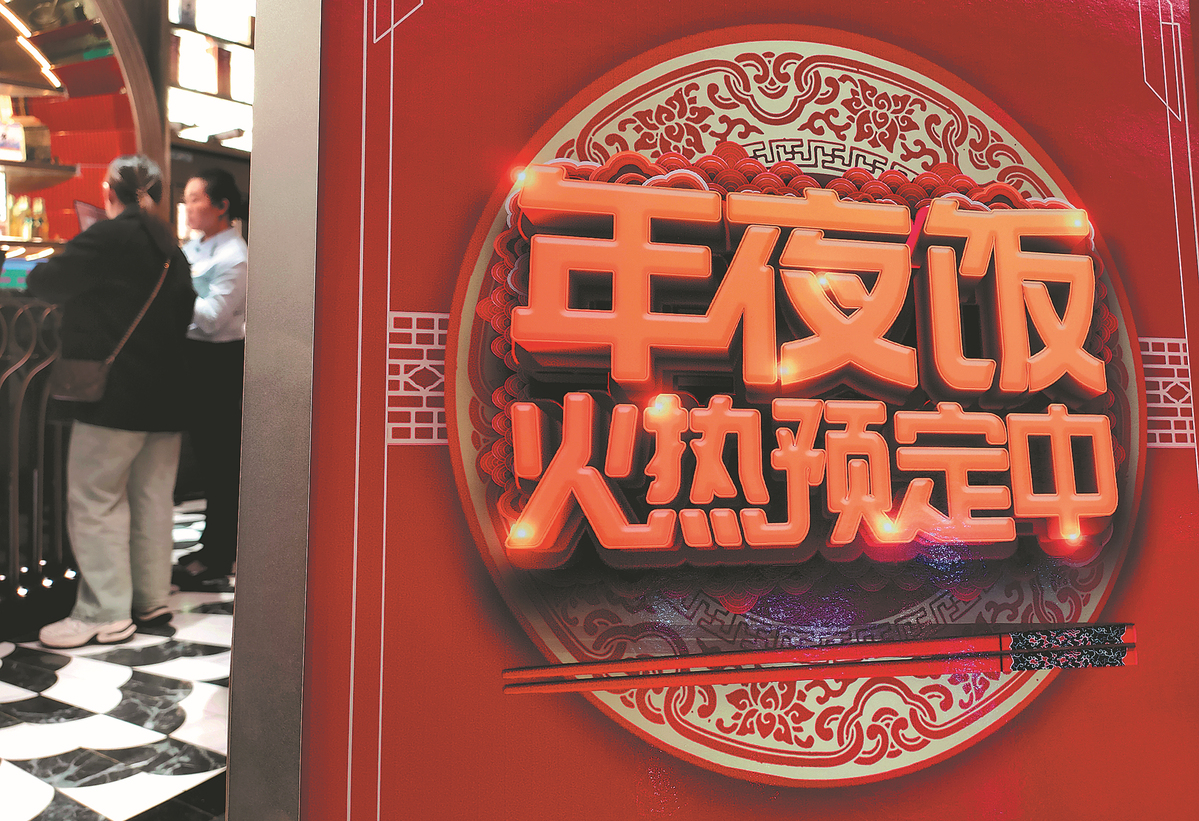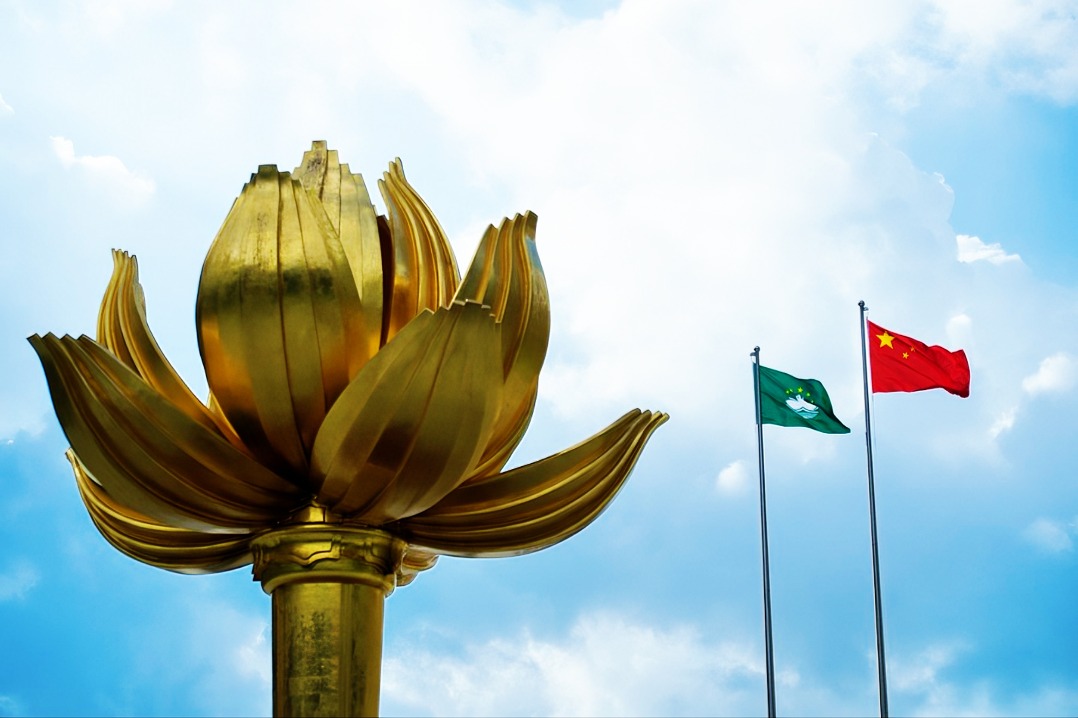Lunch is in for Lunar New Year's Eve
Extended Spring Festival break has boosted bookings for noontime family reunions


Bookings for lunch banquets on Lunar New Year's Eve have soared as Chinese consumers prepare to celebrate the Year of the Snake in 2025, with several restaurants saying they are coordinating with suppliers to increase stocks.
Lunar New Year's Eve has for the first time been officially included in the Spring Festival break next year, making it an eight-day holiday from Jan 28 to Feb 4, and the extended holiday has boosted bookings for lunch banquets at restaurants by about 20 percent year-on-year, catering firms said.
Over the past few years, family reunions over dinner on Lunar New Year's Eve have been quite popular among Chinese consumers and it has often been difficult to book a table at sought-after restaurants.
So, some customers have shifted to having a meal with their families at noon, and bookings for lunchtime get-togethers are expected to remain robust, said Zhu Danpeng, an independent food and beverage analyst.
Quanjude, an iconic traditional Peking roast duck chain, said it would remain open all day during Lunar New Year's Eve, and also extend its business hours.
The restaurant chain also said it plans to increase dining spaces at its major outlets nationwide to cater to growing demand from consumers.
Besides, Quanjude has added set meals at different price points for the Lunar New Year's banquets. These include set meals designed for three, five or 10 people, the restaurant said.
"Such a trend of having lunch banquets will help drive domestic demand and sales revenue of catering enterprises. Due to the fast pace of life and work as well as a growing younger generation, Chinese consumers have been increasing their expenditures for dining out of home," Zhu said.
"This is also an important signal of the gradual recovery and steady growth of the Chinese economy," he added.
In the first 11 months of this year, catering revenues nationwide stood at 5.02 trillion yuan ($691 billion), up 5.7 percent year-on-year. In November, the national catering revenues grew by 4 percent on a yearly basis, and the growth rate was 0.8 percentage point higher than in October, said the National Bureau of Statistics.
"There has been a continuous reallocation of consumer expenditure toward service sectors such as dining and travel, with retail sales in these areas experiencing a 6.7 percent increase during the first three quarters," said Rachel Lee, general manager of Kantar Worldpanel China, a research institute on fast-moving consumer goods.
Meanwhile, Shandong-style restaurant chain Fengzeyuan, a chain affiliated to Quanjude Group, started to accept bookings of private rooms and meals for Spring Festival holiday as early as October. So far, all private rooms for Lunar New Year's Eve's noon banquets have been booked at its Zhushikou outlet.
Another time-honored Shandong-style restaurant chain Tongheju said since Spring Festival holiday in 2025 has been extended by one day, the restaurant has seen customers booking banquets for the holiday in advance this year and also a higher volume of such bookings. Bookings have grown by 20 percent over last year especially for lunch banquets on Lunar New Year's Eve.
The Chinese government has launched more stimulus measures and issued guidance to support household consumption since late September.
"Although it will take patience and time for the stimulus to fully take effect, it is likely to progressively build consumer confidence, which will later translate into higher consumption," said Bruno Lannes, senior partner at Bain & Company.
To succeed in 2025, China's fast-moving consumer goods players need to embrace the out-of-home opportunities, and maximize physical availability, both online and offline, to capitalize on the full potential of omni-channel approaches, he added.
























